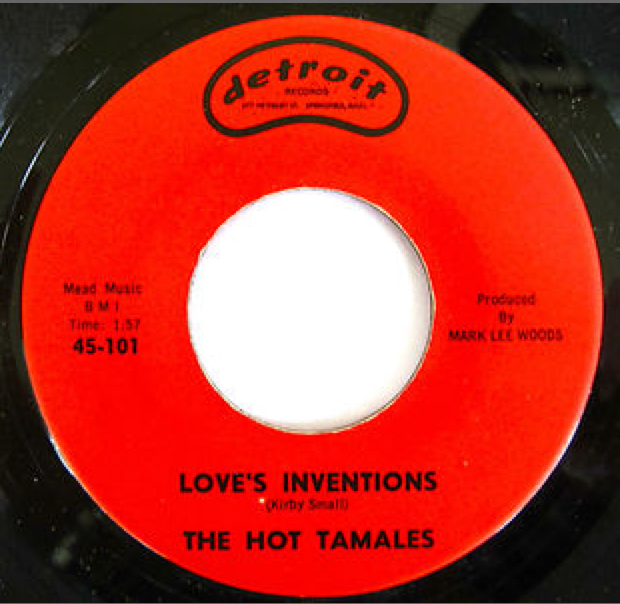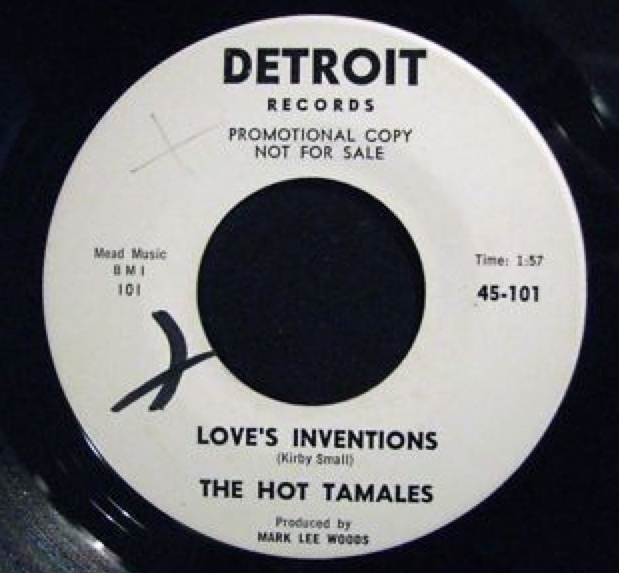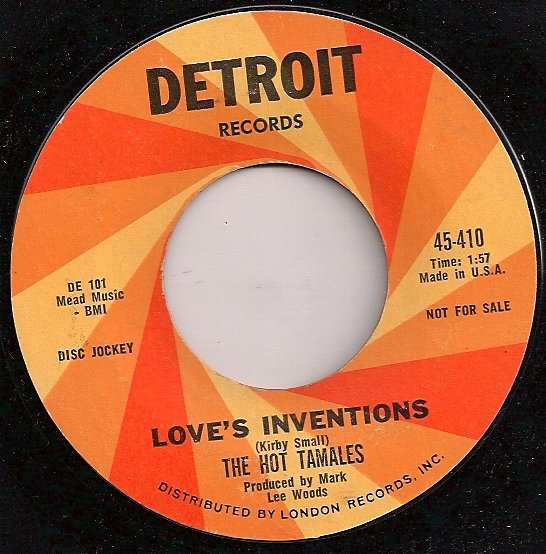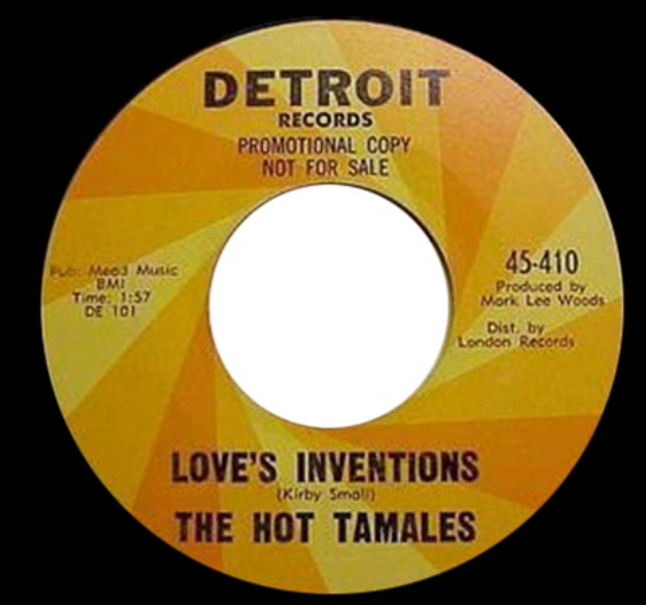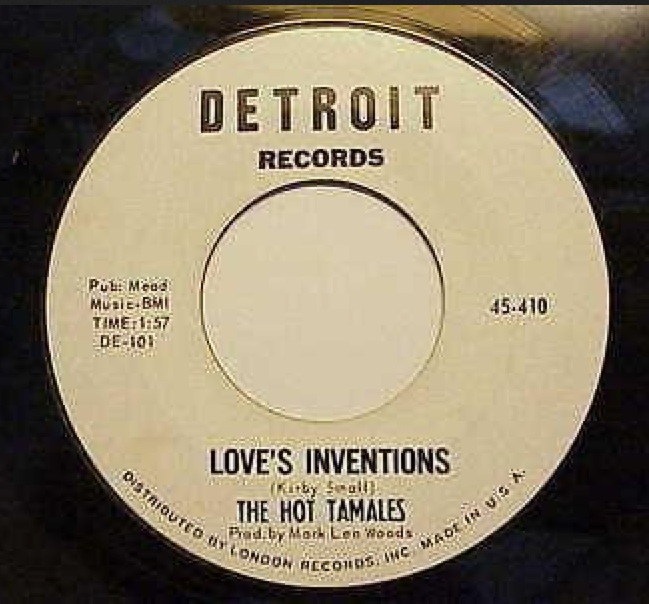Everything posted by Robbk
-
Same name groups ?
OEPS!!! I thought I was READING Eddie Daye! No, there was no Sonny Daye with The 4 Bars.So, there were only 2 Sonny Dayes. Sorry! But, I am old. I have an excuse. I can't find an emoticon for embarrassment, so a pirate will have to do. As The Duets sang, "Please Forgive Me".
-
Same name groups ?
One in the same. Baltimore/Washington are very close, almost like twin cities. They behave like one single metropolitan area.
-
Motown Soundalikes
I understand his point very well. To me, only the first 4-5 cuts I've listed on this thread really "sound like Motown recordings" to me. All the rest really are just "reminiscent of Motown". as they only share sameness in one or 2 of the different elements in the recording. I can almost always tell the difference, for example, in recordings in Golden World Studio before and after Motown took over EVEN though most (if not ALL) the session instrument players were working for Motown at the time of their sessions for Wingate, and even the arrangers and songwriters had previously worked for Motown. I also can't remember an HDH production for one of their own labels, which really sounded like a Motown production. Sure, they all had 1-3 elements that sounded like Motown. But, for me, there are 7 or 8 elements that must ALL or most sound like Motown to reach the quality of a Motown recording. But, then, I've been called insane - to which Rod S. can attest.
-
Same name groups ?
Then there were THREE Sonny Dayes! Frank Wilson, the lead singer of Washington D.C.'s 4 Bars, and Tje lead of L.A.'s Sly, Slick & The Wicked. It reminds me of how many Robert Kleins there are!
-
Barrett Strong - Use Your Head
Yes, she became enamoured with those songs from hearing them on that tour. And she suggested that she record an LP of them. The Fox bigwigs liked the idea, not knowing that the "Pop market" wouldn't take to them. Those recordings just don't have much zip and energy to them, probably because her Soul producers and arrangers weren't all that inspired by The Beatles' songs, and making Pop records wasn't their expertise.
-
Same name groups ?
The OTHER Motown Frank Wilson's brother, Vance Wilson had a solo recording career in L.A. and the brothers were together in The Remarkables. I don't remember the Soul Frank Wilson having a brother who recorded. His wife, Barbara was a singer, and recorded the demo for "Every Little Bit Hurts". As you probably know, the Eddie Wilson on Tollie was actually Frank, who also recorded as Sonny Daye.
-
Motown Soundalikes
"Poor Unfortunate Me" - J.J. Barnes, "Did My Baby Call" - Steve Mancha, I'll Never Let You Go" - O'Jays, "Later, For You Baby"- "You Lied" - Marva Josie, "I'm The Playboy" - The Pyramids, "Use Your Head" - Mary Wells
-
Motown Soundalikes
"Lucky To Be Loved By You" by Emanuel Lasky, "Talking About My Girl" by The Parliaments, "Me Without You" by Mary Wells, "Happiness Is Here" by Tobi Lark, "There's Some Good In Everything Bad" by The Fabulous Apollos, "Run One Flight Of Stairs" by Gloria Jones, "No Part Time Love For Me" by Martha Starr, "Don't Lead Me On, Baby" by Emanuel Laskey, "My World Is On Fire" by Jimmy Mack, "This Heart of Mine" by The Artistics. Every one of these productions uses session players and a few use arrangers from Detroit or L.A. that were used by Motown, and songwriters and/or producers who had been with Motown previously. I've never heard a production from another city that didn't have someone currently or previously involved with Motown involved and it sounded like Motown. That is to say, MOST of the non-Motown cuts I think sound like Motown had The Funk Brothers and other Motown session players involved. And those few that didn't, were recorded in L.A. by ex Motown producers or current Motown producers moonlighting, using the same L.A. studios and session players they had used for Motown productions, and the same for the few New York productions, which all used Richard Tee and his regular session players (who was and were used by New York's Jobete Music producers). In other words, I don't think ANY of those NS songs completely unrelated to Motown that "Soulies" say sound like Motown, such as Len Barry's "1-2-3", and any Philadelphia, DC, Cleveland, etc, productions sound anything like Motown. It takes at least 3 to 4 different elements to me, to sound like Motown - not just the beat and a similar vocal style. The instrumental quality, mixing style, songwriting and arrangement style and recording studio acoustics have the most to do with it.
-
Same name groups ?
There wear a few different Teardrops groups, early 195os male Doo Wop group (precursors of The Mello-Dees and Love-Tones), as well as several different female '60s groups from N.Y,. The South, Michigan. There was a '50s R&B Diamonds (Atlantic) and Mercury Canadian R&R group, and Brunswick Pop group, Regals - '50s R&B (Atlantic), Pop (MGM), The Five Blind Boys (Alabama group)(Mississippi group), The Four Pennies (Female Group (AKA Chiffons). male group (Brunswick), Pastels-Chicago (United), Philadelphia (Mascot/Argo), Dynamics '50s L.A. group, '60s Detroit group, '60s Philadelphia group, '50s Texas guitar instrumental group, Dimensions ('50s R&B group), early '60s White Doo Wop group, Headliners ('50s R&B group) early '60s Pittsburgh Soul group, '60s Detroit garage group (Hideout, VIP), Chimes '50s L.A. R&B group (Specialty), '50s NY R&B group, '50s White Doo Wop Group, '60s Chicago Soul Group (Chymes).
-
Barrett Strong - Use Your Head
Wow! They are great! They were certainly only meant as demos for Mary, given as there was no openly obvious songs marketed for Gay dance clubs at that time. That must be Barrett, himself, playing the piano. It's absolutely amazing what Sonny Sanders did to those simple musical renderings of the songs, in his eventual final arrangements and instrumental mixes of the commercial recordings. The demos are nice to hear, but they give only the slightest indication of how excellent the final product would become.
-
Hot Tamales
Sorry. Current prices is an area of which I have virtually no knowledge. I have not sought to purchase nor sell records since the early 1980s (at the very latest). Even my knowledge of relative rarity is only related mainly to first hand experience in North America during the 1950s through early 1970s. I have some knowledge of that through the late '80s. But for the years since then, I have little scattered knowledge of what quantity finds of full boxes from warehouses and the original label owners and producers, that made their way to The U.K. and The Northern Scene.
-
Same name groups ?
And two Frank Wilsons from the L.A. Area, both of whom worked at one time, for Motown. There were also 2 Scott Brothers Soul/R&B groups (one from Chicago, one from The East Coast).
-
Same name groups ?
Sorry, yes, the group was from there. But, I thought I remembered the label being distributed from Louisville. But, now that I look on the label, it was from West Virginia, as well. In any case, they were not Geoge Clinton's NJ/Detroit group.
-
Barrett Strong - Use Your Head
Fantastic, thanks. Such A Sweet Thing and "This Old Love of Mine", were of course, done for ATCO. i don't seem to remember "This Old Lopve of Mine" on Mary's ATCO LP, or on an ATCO 45. So, I'll be VERY glad to hear that song. ALL mary's ATCO recordings were great, and most were very well-written Jalynne songs-very close to her Motown level, as were most of her non-Beatles 20th Century Fox songs.
-
Barrett Strong - Use Your Head
- Same name groups ?
Yes. The Cabell group was from Louisviile, Kentucky.- Hot Tamales
I think we've posted all the different white DJ issues. There were London-distributed multi-colour store stock pressings from 1 or 2 plants other than those shown above RCA Pennsylvania and Monarch. That should just about cover the variations.- Barrett Strong - Use Your Head
That was recorded for 20th Century Fox. Robert Bateman, Andre Williams, Barrett Strong and Sonny Sanders were the ex-Motowners working on her Detroit 20th Century Fox Mary Wells recordings. For Strong, he was still living in Chicago, working for VJ at that time. So, this was moonlighting. Sanders was still at Golden World. Bateman was a free lance producer in New York, but also worked on some projects with Popcorn Wylie in Detroit. I suspect that Wylie may have played piano on some of the Fox recordings, especially the demos for Mary.- Barrett Strong - Use Your Head
I would like to hear this badly. Can anyone upload a sound file of it?- Same name groups ?
Carnival's New Jersey Manhattans, Golden World's Detroit group, and Bobby Robinson's New York's Ronnie & The Manhattans, The '50s New Orleans Barons on Imperial, early '60s Detroit group led by Roger Craton (Lee Rogers), early '60s RCA group, late '50s Epic group, Enchanters-early 50s Detroit group on Mercer and Coral, late '50s L.A. group on Orbit Records, Billy Butler & Enchanters, Garnett Mimms' Enchanters UA, Loma (there were so many othe Enchanters groups I won't bother to mention them all (NY, Texas,etc.).- Hot Tamales
There were 3 different white DJ pressings of the non-affiliated Boston local release, and one of the Lond-distributed national release, and there was also a coloured promotional pressing of the London distributed national release:- Same name groups ?
there are hundreds more(probably a few thousand). Just about any common word name one can think of: The Kittens (Chicago) (New Jersey), The Kings (Bobby Hall's Baltimore group). (NY group RCA) (Southern Group), Echoes (4 Echoes) (5 Echoes) , Jesters (NY) (Texas instr. group). , Twilighters (Det. Tony Ewing group) (NY group), Pretenders(Jimmy Jones NY) (Modern Rock group), Heartbreakers (Groove) (Tom Petty group), Rhythm Aces(VJ) (Bobby Moore group Checker), Miracles ( NY Paul Hogan group), ( Money/Cash Group) (Smokey Robinson Group), Supremes (Motown) (Ace Indianapolis group), various Dell-Vikings Del Vikings groups, Ideals (Chicago) (NY), Serenaders (Det aka Royal Jokers) (NY Bobby Robinson Group). Royals (Det. AKA Royal Jokers -Wingate/Fortune) (NJ George Kerr Group), Royals (Det. Federal) (Phil. Okeh) (NY Apollo before changing to Five Royales)), Four Buddies (Chicago-Club 51(NY Savoy) Wash.DC -Van McCoy group, Magnificents (VJ-Montague's group)(L.A. Dee Gee Group), Gems (Chi. male '50s Drexel) (Chi. female Chess Minnie Ripperton), The Flames (James Brown group) (Bay area 7-11 Group) Hollywood Flames various forms, Counts(Dot Tenn.) (Note group Indianapolis), HiLites (NY) (Ronnie & Hi-Lites-L.A.), Highlighters.(NY) (PA), Leaders (Hull '50s) (Blue Rock '60s), Majestics(Latino L.A.FARO) (Det-Johnny Mitchell group) (Det. Richard Street Group), Palisades (AKA Cookies-NY female group), (NJ male group), Corvettes (NY R&B group) (Rock instr. group), Constellations (Chi. Smash) (NY Violet), ........could go on forever. There were hundreds of rock/guitar instrumental groups that had the same name as R&B or Soul groups, male and female groups with the same name and old era group names resurrected.- Don Gardner - My Baby Likes to Boogaloo (Tru-Glo-Town)
Alright.. No changes, then. "Satisfaction" has plenty of changes that keep it from becoming too repetitive, with no re-introduction of energy. I agree with you that no one could argue that it's not good for dancing.- the adventures - easy baby
We've talked about Compass Records regarding The Ohio Players. I had always thought it was a Midwestern ( Ohio) label. But people on this forum said it was a New York label, reminding me that Johnny Brantley worked out of New York. Yet, I don't remember seeing ANY New York artist getting a Compass release. I assumed that these Adventurers are the same Milwaukee group that had releases on Chicago's Ran-Dee and Blue Rock. Is this true? Or were they a different, East Coast Group? Didn't Greg Perry work out of Detroit? Wasn't he a cousin of one of The Temptations (or someone at Motown)?- Don Gardner - My Baby Likes to Boogaloo (Tru-Glo-Town)
It's a pretty boring cut, with no real hooks. Too much the same. It doesn't really hold up against a Junior Walker & The All Stars, Booker T & MGs, James Brown & Famous Flames, Bar-Kays, or David T. Walker Funk Boogaloo or Skate cut. I'm no Funk fan, but, I remember what kids liked at parties back in '67- '69, and this one was fairly marginal (at least in The Midwest), and non-existant on The West Coast. It probably had a lot of sales on in The Northeast and Central Atlantic Coast, because Gardner had a big following there because he was a regular star performer in their club circuit. I don't remember him making many appearances in Chicagoland. The only time I heard of him appearing on The West Coast was at the beginning of The '60s, when he and Dee Dee Ford had their monster national hit, "I Need Your Loving" out on Bobby Robinson's Fire Records. - Same name groups ?

